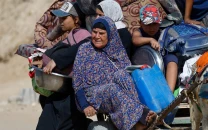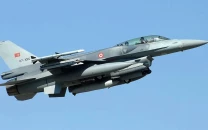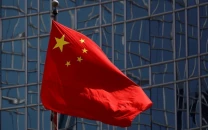Bangladesh — metaphor or allegory?
Almost 45 years after its bloody secession, governing party seems to be heading towards one-party authoritarian system

Bangladesh — metaphor or allegory?
The current crisis in eastern Europe reflects one of the downsides of this trend. Experts tell me that Russia was opening and modernising in the 1990s, but under President Vladimir Putin and his former KGB pals, it has become an authoritarian society again. It now emulates the Soviet Union, the mother of authoritarian states it escaped only 23 years ago. This retreat into authoritarianism lies at the heart of its current ultra-nationalistic policies trying to recreate Soviet hegemony in eastern Europe.
Putin’s nostalgia for this imagined past glory, driven by knowledge that nascent democratic states on Russia’s western border would threaten his political survival, has led to the kind of political crisis in eastern Europe not seen since 1939. Many Western commentators see parallels between current Russian policies and the nakedly aggressive, revanchist, irredentist policies of those sad days 75 to 80 years ago, which ultimately led to the Second World War and well over 30 million civilian deaths.
The Ukraine crisis coincides with the centennial of the beginning of the First World War in the summer of 1914. This has provoked Niall Ferguson, the controversial and creative economic historian, to point out, also in the FT, the similarities of the present crisis with the “sleepwalk” of European leaders into that conflagration. The Great War, in which at least 17 million people died, is often blamed as the precursor that made inevitable the rise of aggressive, irredentist, ultra-nationalist states after 1930, and the bloodbath of 1939-45. Why, we should ask, has democratisation gone backwards in the early decades of the 21st century after seeming to be, in the late 20th century, ‘the end of history’? Some would argue that it reflects the economic stumbling and apparent political sclerosis of most established democracies at present, which because of political gridlock or ineptitude, have not been delivering the economic and political security that their citizens expect and demand. But I know of no great flow of aspiring immigrants to Russia, China, or Turkey. The flow seems entirely toward democracies, as millions seek freedom and rule of law.
No, the answer is not in the current underachievement of democracies. The drift backwards towards authoritarianism is a matter of choice. The backsliding states have essentially themselves chosen to abandon democratisation. Until the Russians forcibly annexed Crimea, no aggressor had forced authoritarianism on a neighbour since the Soviet Union collapsed. This, of course, does not count instances in which authoritarian states have forcefully prevented would-be breakaway provinces from leaving their embrace despite the will of the people to secede.
But even successful secession, in which much blood and treasure were expended in a struggle for political and economic freedom, is no guarantee against a subsequent reversion to indigenous authoritarianism. Bangladesh is an example, and perhaps, a lesson. Almost 45 years after its bloody secession, the governing party appears to be heading towards a one-party authoritarian system. Its introduction of a press-gag law is simply the latest step in that direction. A law constraining NGOs is in the works. The voices of opposition are being silenced. At some point, the question of choice will be moot unless a coherent and inclusive opposition comes together. We wait for signs of that.
Published in The Express Tribune, August 12th, 2014.
Like Opinion & Editorial on Facebook, follow @ETOpEd on Twitter to receive all updates on all our daily pieces.



















COMMENTS
Comments are moderated and generally will be posted if they are on-topic and not abusive.
For more information, please see our Comments FAQ